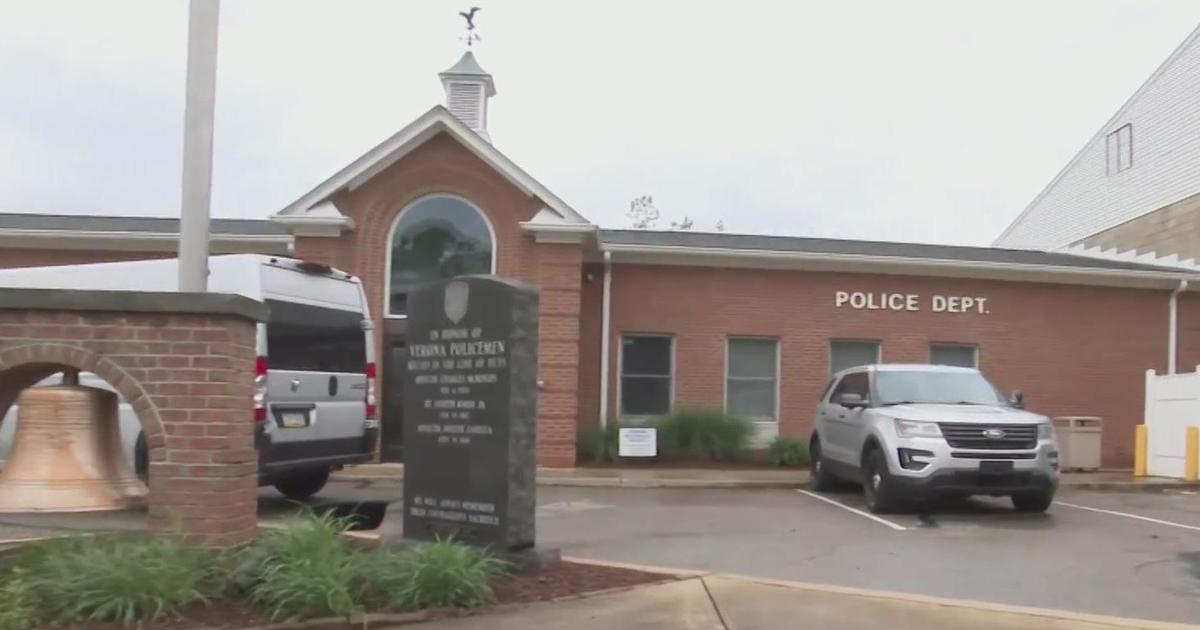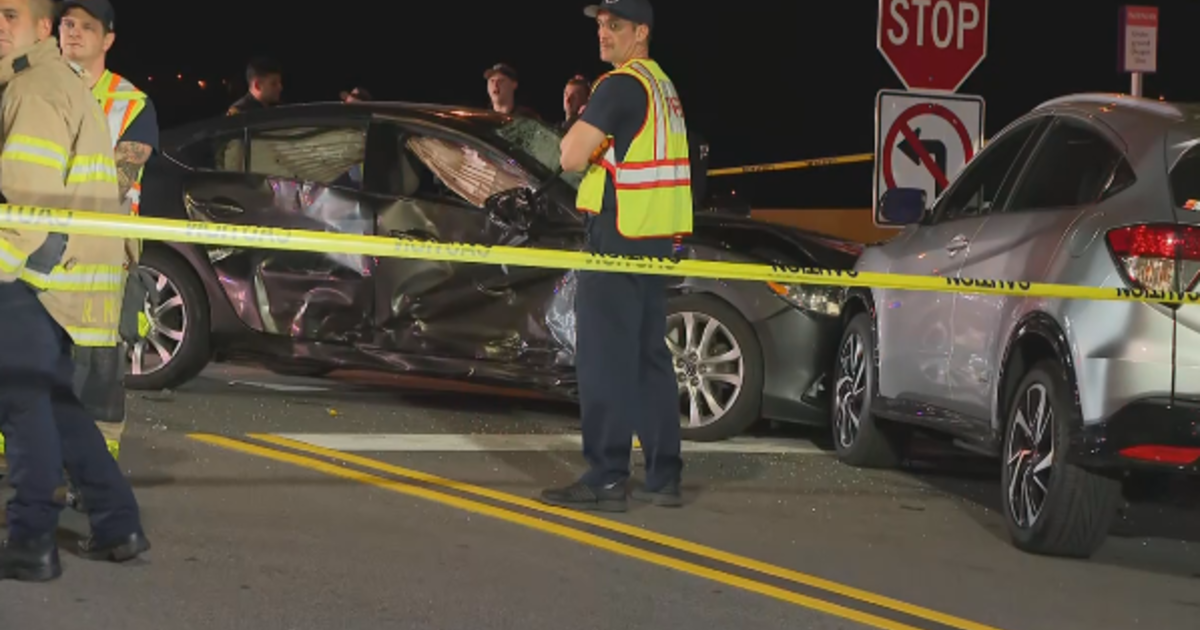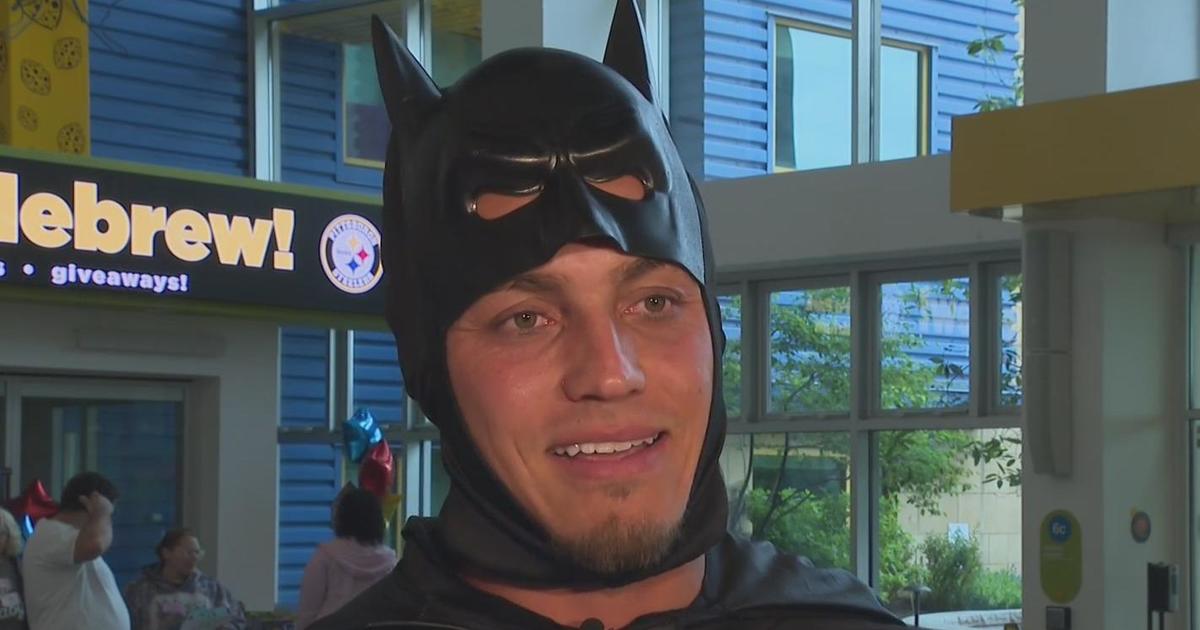KDKA-TV Exclusive: New investigative details reveal guns, gasoline, number of rounds exchanged between Garfield gunman and police during hourslong standoff
PITTSBURGH (KDKA) -- New information about last month's hours-long standoff in Garfield is starting to paint a clearer picture of what happened that day.
Sources tell KDKA-TV's Jennifer Borrasso that state police are close to wrapping up the investigation and will soon send a report to the DA for review. All 72 law enforcement officers who were put on leave afterward are now back on the job, and sources say while those 72 law enforcement officers fired around 4,000 rounds, the man on the other end of the gun battle had just two guns and fired only dozens of rounds.
That neighbor was Bill Hardison Jr. Sources now say Hardison fired fewer than 100 rounds from two guns: a rifle and a handgun. Police also found a few cans of gasoline inside his home.
Sources say Hardison was shot multiple times. It remains unclear which shot killed him. However, KDKA-TV's Jennifer Borrasso was told none of the shots were self-inflicted.
"It felt like a movie, an out-of-body experience," said Laura Longenecker.
Longenecker took video of the Garfield standoff from inside her home on North Mathilda Street. Weeks later, she's still haunted.
"I imagined it was the closest thing to being in a war zone without going to war due to the amount of gunfire," Longenecker said.
"I heard them request ammo very early into the situation and I was confused. They weren't prepared for this, but no one expects domestic terror on a Wednesday when it's supposed to be a standard eviction process," Longenecker said.
"About an hour in, I saw on my phone it was an eviction. That's when I knew it was related to the neighbor," she added.
Longenecker was hunkered down in her basement as she listened to gunfire.
"It was terrifying and very loud, and very confusing and very chaotic. It sounded like it was right outside my house and I had no idea if there were police in my yard or where the gunfire was coming from," she said.
"I was concerned there was going to be a fire or an explosion. My neighbor had told me he had guns and possibly explosives back in June."
"I called the police to say, 'I'm sure you already know this, but I was told he has weapons and potentially explosives. And I hope you guys are prepared for that in case there is a fire.'"
Longenecker also captured a dramatic scene behind her house right before the standoff ended.
"I saw the neighbor shoot a shotgun blast out the back window and that was very frightening. That was right before state police used the rook," she said.
She said the police response was "very robust, rapid, militarized" and "seemed like a very measured response. They were trying to keep the community safe."
"I'm very grateful that none of the neighbors were hurt. It's unfortunate that life was lost. But it seemed like the shooter was determined to go to war with the police and not really go down without a fight and he seemed to be having a mental health crisis as well," she said.
The city of Pittsburgh brought in trauma support a day after the standoff to try to help neighbors. But Longenecker doesn't think it was enough.
Some neighbors say they're still on edge.
"I think in general, this is a collective trauma for the neighborhood and everyone is sad, hyper-vigilant, sensitive to noises and wanting to move forward, but still having constant visual reminders," Longenecker said, like boarded-up windows, property damage and Hardison's truck, still parked on the street.
"It's been hard to get back to regular life and work and it's been hard to concentrate," she said.
KDKA-TV's Jennifer Borrasso asked her what she feels when she walks through the neighborhood.
"Nauseous, sad, overwhelmed. Just like, I want to run away and cry," she said.
The day after the standoff, the city of Pittsburgh brought in trauma support from the city's Office of Community Health and Safety. Mental health care workers went door to door as did the mayor and police chief.
"We had a mobile unit where people could receive private one-on-one support the day we were canvassing as well," said Camila Alarcon-Chelecki, the assistant director of Pittsburgh's Office of Community Health and Safety.
"Afterwards, we did a trauma response event in order to better serve the neighbors, more one-on-one conversations. So this wasn't a group thing, but there was more of a space where people could receive one-on-one support."
Around 30 residents attended the meeting, which included small group therapeutic listening sessions as well as opportunities for one-on-one emotional debriefing and referrals and resources for further therapy and trauma services. Longenecker took advantage of that meeting, but says she doesn't feel it was enough.
"I don't think that what the response was so far has resolved everyone's trauma. And they acknowledged that this could be ongoing. And that they are available. I just worry people might just want to forget about it and move on and I worry about not enough people being reached," Longenecker said.
During a walk through the neighborhood, KDKA-TV met Longenecker's neighbor Jackie Lane. She lived next door to Hardison's house and now has bullet holes in the walls their homes shared.
"My holes are so big in my wall, you can see into his house," Lane said.
When asked how she was feeling, she said, "You are just emotional. It's hard to believe that it happened. My gutters have holes, my windows."
As for the city's next steps in Garfield?
"We need to assess what the need is, right? We need to assess if people need those types of interventions," Alarcon-Chelecki said.
KDKA-TV asked her when there will be another meeting.
"We are in the community, we continue to go to the community. We will let them know through our partners, through our team," she said.
"We have weekly huddle meetings where we discuss if we see a need to do more of these events."
"I think a lot of people are ready to move on but this is a situation where people could end up with PTSD," Longenecker said.
"My concern is the people might not feel comfortable reaching out for support there can be a lot of shame around needing to have therapy."
Neighbors said dealing with all the insurance paperwork they're now filing is also adding to their stress. There's still a lot to sort out in Garfield, both physically and emotionally.




